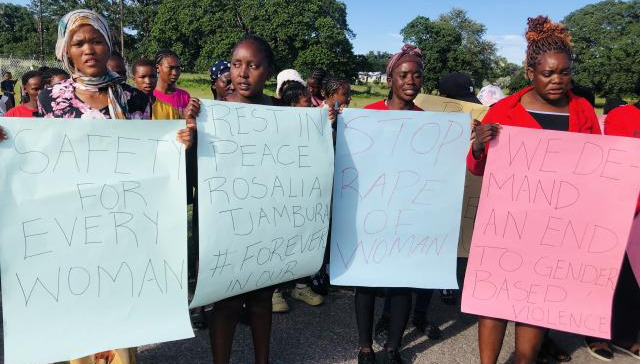In 2015, The Namibian reported that statistically, divorce was one of the main societal problems in the country. This stems from reasons such as gender-based violence, suicide, alcohol abuse and even child neglect. Sadly, the statistics say that the divorce rates continue to skyrocket and therefore, social workers are constantly encouraged to train and guide couples when worst comes to worst.
Unfortunately, there’s more.
“There are many causes [of divorce], from infidelity to the failure of showing and giving love and affection. The list goes on and on,” Rochelle Kandjella from the Labour Law office explained. In Namibia, there are two types of divorce, depending on how one got married. You would either have to go through the customary law on divorce if you were married traditionally, or follow the civil law of divorce. This article will only focus on civil law.
According to public court documents made available to the Superior Courts website, grounds for divorce include failure to show love and affection towards each other, failure to communicate, violence, psychological abuse, affairs and even refusal to continue with the marital relationship.
Did you know that if your partner is cheating on you in a marriage, you can sue the person who was involved in the affair? “Through the High Court of Namibia, yes, it is possible to sue such a third party,” Kandjella confirmed.
On a regular basis, the court has to deal with couples who are in the process of divorce, but in fact, it is more complicated than just parting ways for good. If children are involved, especially minors, the court would demand a regular child maintenance payments which, if missed, could result in another court appearance. Child maintenance includes educational and medical costs for the children.
Have you heard about custody? This is when children are put into the protective care or guardianship of someone who is reliable. The court will always investigate the circumstances surrounding a person, so if the court finds you unreliable when it comes to taking care of your children, or you do not have enough resources to assist your children, it will not grant you custody of the children. That is why it is important to keep a clean record.
Share a property, accounts or a car together? The court can decide who either of these go to, but your lawyer can decide that the net proceeds (payments after the mortgage bond and the municipal services account have been paid) can be divided equally or not.
Before you get married, it is important to keep these in mind so that you can decide if it is best to marry in and out of community of property.
Based on documents released by the Legal Assistance of Namibia, marrying ‘in community of property’ means that all the property of the husband and the wife are put together into what is called a ‘joint estate’. The document further states that “everything that belonged to the husband before the marriage and everything that belonged to the wife before the marriage become part of the joint estate”.
If more money was earned between either of the parties in the marriage, it would become a part of the joint estate as well.
Everything they buy during the marriage would also be shared together. Thus, during a divorce, all the money in the joint estate would be split in half, no matter who bought the item.
‘Out of community of property’ means that the husband and the wife each have their separate property. This is where the ‘what’s mine is mine’ and ‘what’s yours is yours’ term fits in perfectly.
If the husband earns a million dollars a month, for example, and his wife only earns
N$20 000 per month, each of them have separate accounts where they keep their money, unless the husband personally decides to give a portion to his wife. Husband and wife are also personally responsible for their own debts or loans.
So which is the best option? “It depends on the needs of the parties. There are various options. It would be best that you meet with a lawyer and decide what exactly you want to take care of,” Kandjella advises.
Before you hand in those divorce papers, remember to think carefully about the circumstances and consult a lawyer as soon as possible.
“I had the most troubling times of my life. I even started to get health complications due to the stress. I had to let go of everything and start all over again. Those were the defining moments of my life. I now value time and my peace of mind.
I try to be the best father to my two daughters and be there for them every major step of their development. I also learnt to focus on the things that matter the most at any given moment,” said Omurumendu Wa Kaundja about his divorce.
Thabo Moncho also shared his experience with on his divorce, which he said taught him a number of things. “It had taught me never to trust again and never to underestimate my individual values, which I will not and never compromise on.
They simply mean accept the things that you cannot change in life, and let go when the golden egg of the marriage has broken down. And never resort to violence as a tool of revenge.”
In an age of information overload, Sunrise is The Namibian’s morning briefing, delivered at 6h00 from Monday to Friday. It offers a curated rundown of the most important stories from the past 24 hours – occasionally with a light, witty touch. It’s an essential way to stay informed. Subscribe and join our newsletter community.

The Namibian uses AI tools to assist with improved quality, accuracy and efficiency, while maintaining editorial oversight and journalistic integrity.
Stay informed with The Namibian – your source for credible journalism. Get in-depth reporting and opinions for
only N$85 a month. Invest in journalism, invest in democracy –
Subscribe Now!











